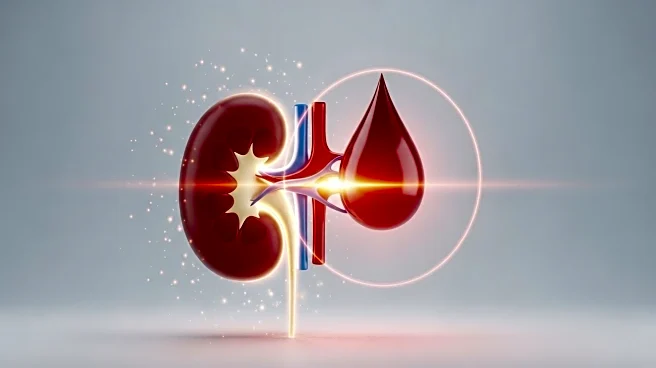What's Happening?
Scientists have successfully converted the blood type of a donor kidney from type-A to type-O and transplanted it into a human subject. This groundbreaking procedure, conducted by researchers from Canada and China, marks the first instance of its kind and could significantly enhance access to donor organs. The conversion process involved using an enzyme to remove type-A antigens from the kidney, effectively transforming it into a type-O organ, which can be universally accepted by recipients regardless of their blood type. The kidney was transplanted into a 68-year-old brain-dead man in Chongqing, China, where it remained healthy for two days and produced urine for six days before showing signs of rejection. The findings were published in Nature Biomedical Engineering.
Why It's Important?
This development holds the potential to revolutionize organ transplantation by eliminating blood type compatibility as a barrier, thereby increasing the availability of donor organs. Currently, organ transplants are limited by the need for blood type compatibility between donor and recipient, which restricts the pool of available organs and prolongs wait times for patients. By enabling the conversion of organs to a universal blood type, this technique could reduce transplant wait lists and improve outcomes for patients in need of organ transplants. It also allows medical professionals to focus on matching other critical antigens that affect the longevity and success of transplants.
What's Next?
Further research and trials are necessary to refine the enzyme conversion process and address the rejection issues observed in the initial transplant. Scientists and medical professionals will likely explore the application of this technique to other organs and assess its long-term viability and safety. Additionally, regulatory bodies may need to establish guidelines and protocols for the use of converted organs in clinical settings. The success of this procedure could prompt discussions among healthcare policymakers and transplant organizations about integrating this method into standard practice.
Beyond the Headlines
The ethical implications of modifying donor organs to have universal blood types may spark debate within the medical community and among the public. Questions regarding consent, the prioritization of recipients, and the potential for increased demand on donor systems could arise. Furthermore, this advancement may lead to discussions about the future of genetic and enzymatic modifications in medicine, potentially paving the way for more personalized and accessible healthcare solutions.










